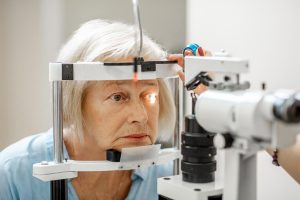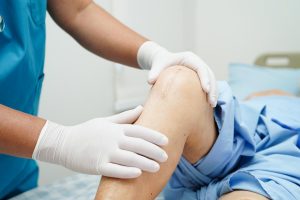Many older adults with depression don’t respond to their first antidepressant, so doctors will switch them to another one to see if that does the trick.
Now, new research suggests that the best strategy for these folks may instead be to add the antipsychotic drug Abilify (aripiprazole) to the original antidepressant.
“This is good news for older adults with difficult-to-treat depression,” said study author Dr. Eric Lenze, head of the department of psychiatry at Washington University School of Medicine in St. Louis. “Adding a second medication produces improvements in psychological well-being [e.g., positive mood, life satisfaction] and, often, remission from depression, and these improvements are greater than switching medications.”
The two-part study included 742 people aged 60 and older with depression who had not responded to at least two antidepressants.
In the first part, 619 people who were taking an antidepressant were randomly divided into three groups. Some remained on their original medication and added aripiprazole, others continued taking their antidepressant but added the antidepressants Wellbutrin or Zyban (bupropion), and a third group tapered off their original antidepressant and switched to bupropion.
The patients were followed for 10 weeks, and their medications were adjusted accordingly.
Nearly 30% of people who continued with their original antidepressant but added aripiprazole showed improvements in symptoms of depression, compared with 20% of those who were switched to bupropion alone, the study showed.
There was no difference between adding aripiprazole or bupropion in the study, but bupropion is linked to a greater risk for falls, which can be a significant issue for older people. This finding may tip the scales in favor of aripiprazole among older people with hard-to-treat depression.
In the second part, 248 people taking antidepressants were treated with lithium or nortriptyline, two older medications. Neither was effective at relieving depression, the investigators found.
The findings were published March 3 in the New England Journal of Medicine and were simultaneously presented at the annual meeting of the American Association for Geriatric Psychiatry, in New Orleans.
Major depressive disorder is common in older adults, said Dr. Aaron Kaufman, a clinical professor of psychiatry and biobehavioral sciences at the David Geffen School of Medicine at the University of California, Los Angeles.
“Primary care physicians or psychiatrists will often start with a selective serotonin reuptake inhibitor [SSRI] to treat depression, and it generally takes two to three months to see the full impact of that intervention,” said Kaufman, who was not involved with the study but reviewed the findings.
If they don’t respond, people can taper off and try another one under a doctor’s guidance. “If there was partial response to the antidepressant, then treating clinicians may consider switching agents, or alternatively, they may opt to add another agent to further optimize that response,” he explained.
Sometimes the added drug is another antidepressant, but it could also be another type of medication, Kaufman added.
“With each failed medication trial, the likelihood of responding to the next trial is statistically lower and, unfortunately, there are many individuals that continue to have treatment-resistant depression, despite adequate medication trials of appropriate dose and duration,” he said.
It’s important to weigh the risks and benefits of each medication, Kaufman said.
“Augmenting with bupropion [which is commonly used] and aripiprazole augmentation were similar in outcomes on depression, but bupropion augmentation is associated with a greater risk of falls, which is not insignificant in older adult populations that are at risk for medical complications from falls,” he said.
Still, Kaufman said some individuals could gain significant weight on aripiprazole. Additionally, there are other side effects that affect some people who take aripiprazole, including an internal sense of restlessness and movement disorder symptoms.
“There needs to be a discussion of those risks and benefits before initiating treatment,” he noted.
“Fewer than 30% of participants achieved remission of depression from any of these strategies, which means that for many patients, these evidence-based strategies will still not be sufficient,” Kaufman said.
In these instances, other treatments such as individual or group therapy, exercise and increasing social interactions all have a role to play, he suggested.
“Depression among older persons is often under-recognized or minimized, perhaps misattributed as a normal or inevitable part of aging,” Gemma Lewis and Glyn Lewis, both from the University College London, wrote in an accompanying journal editorial. “The findings from this trial should help clinicians and older adult patients make informed decisions regarding the next steps in the absence of a response to conventional pharmacologic approaches.”
More information
The U.S. National Institute on Aging has more on depression in older people.
SOURCES: Eric Lenze, MD, head, department of psychiatry, Washington University in St. Louis; Aaron Kaufman, MD, clinical professor, psychiatry and biobehavioral sciences, David Geffen School of Medicine, University of California, Los Angeles; New England Journal of Medicine, March 3, 2023; American Association for Geriatric Psychiatry, annual meeting, New Orleans, March 3 to 6, 2023
Copyright © 2024 HealthDay. All rights reserved.















-300x169.jpg)









